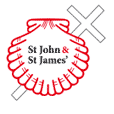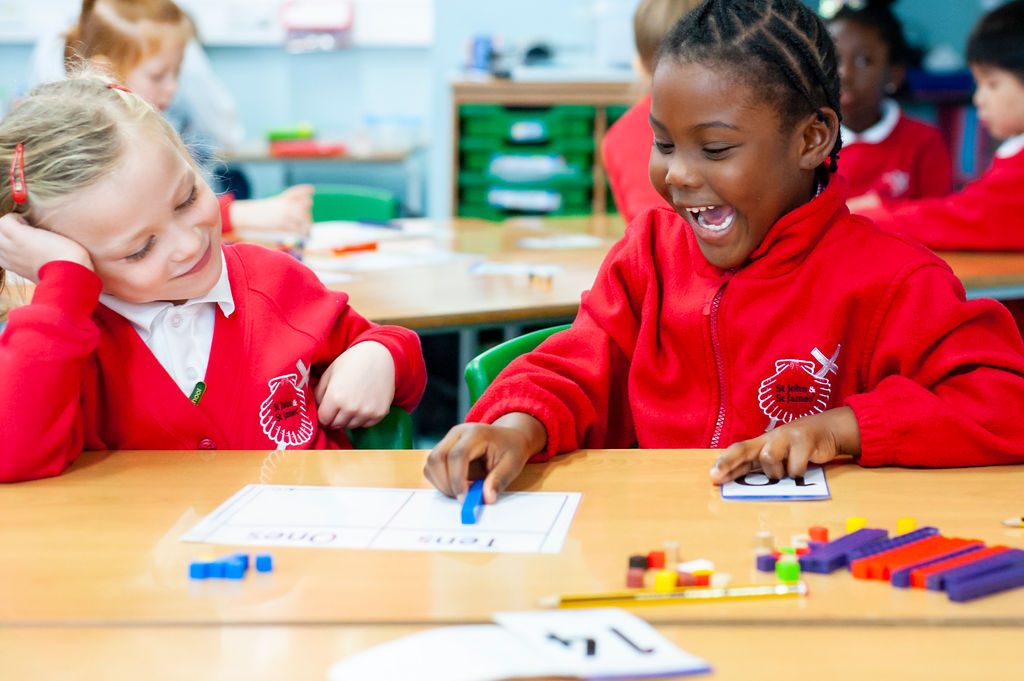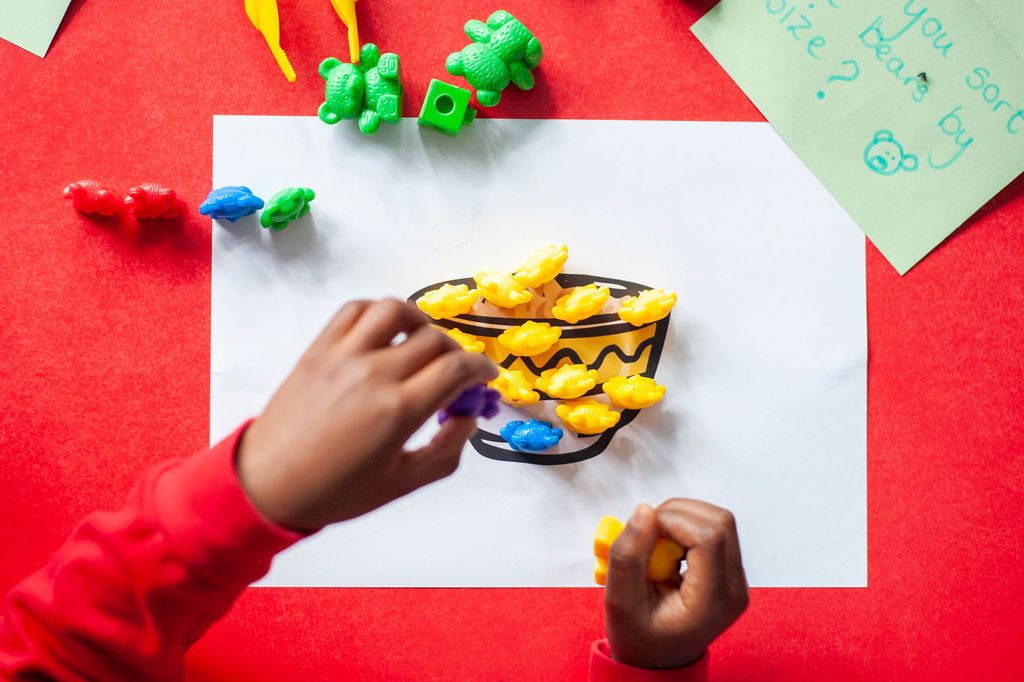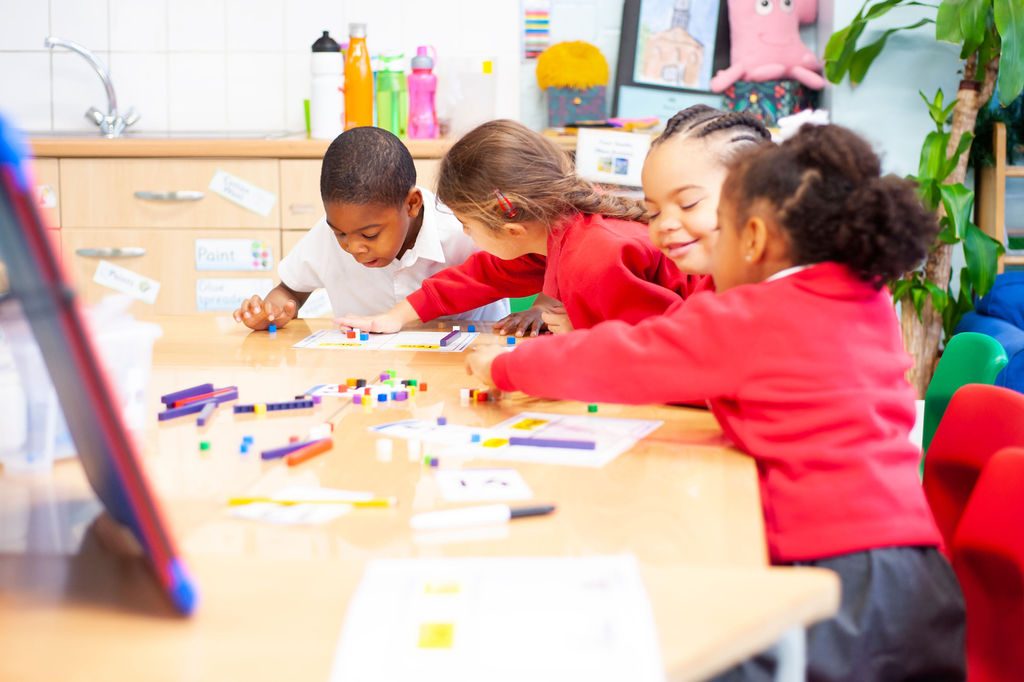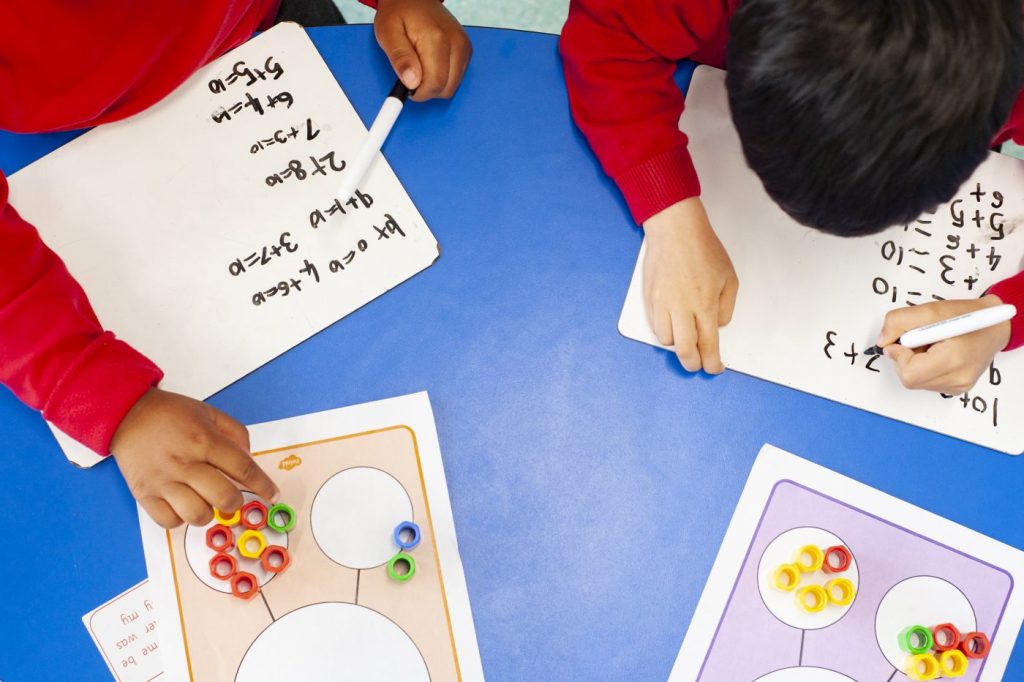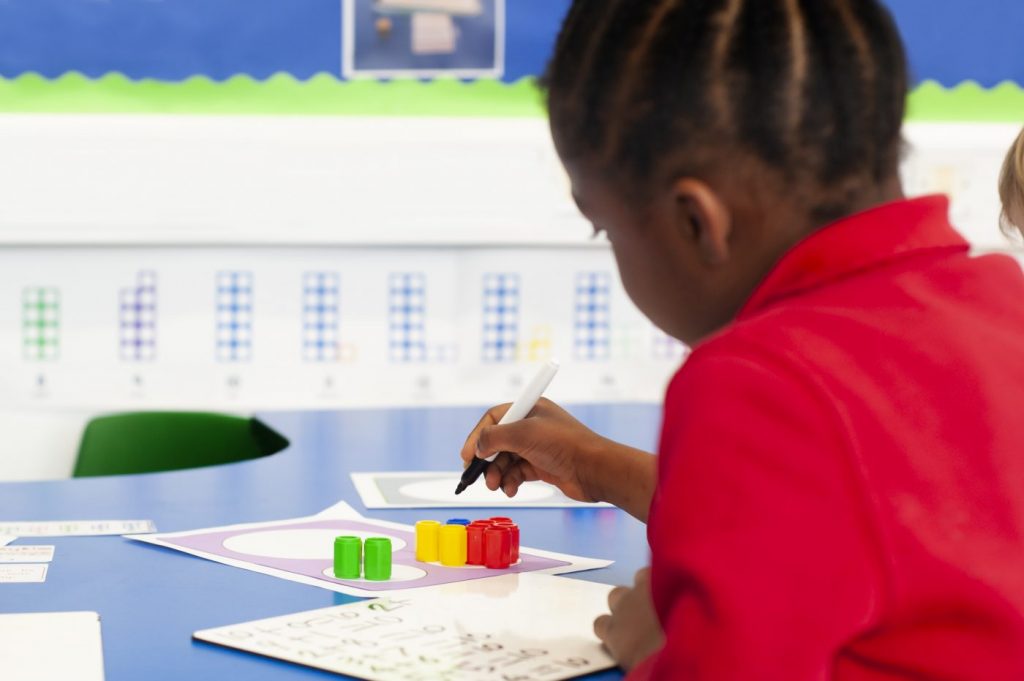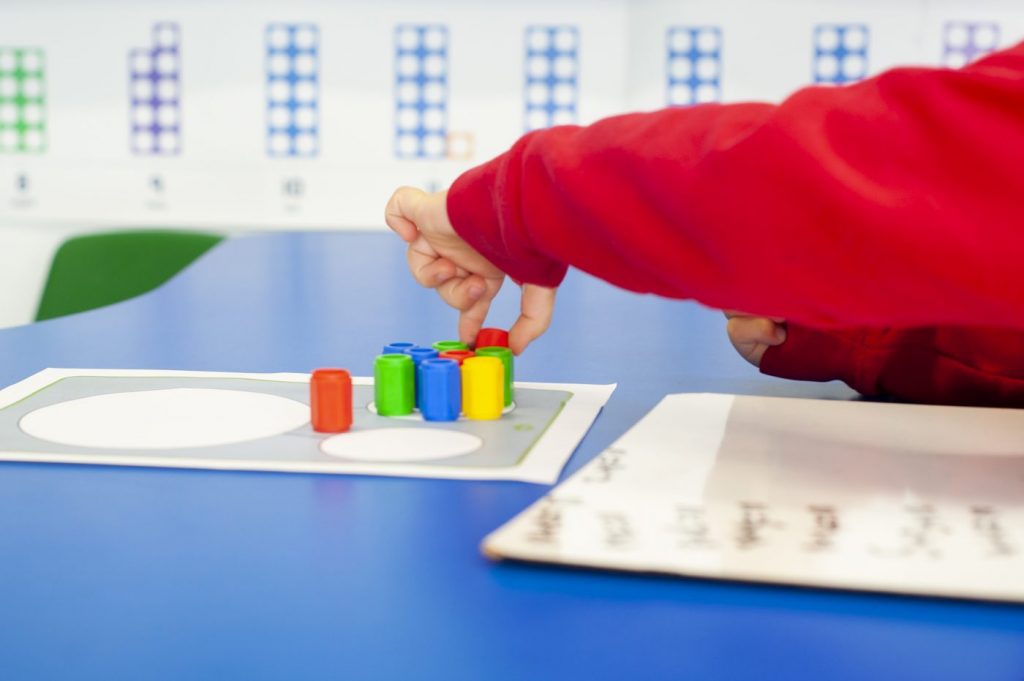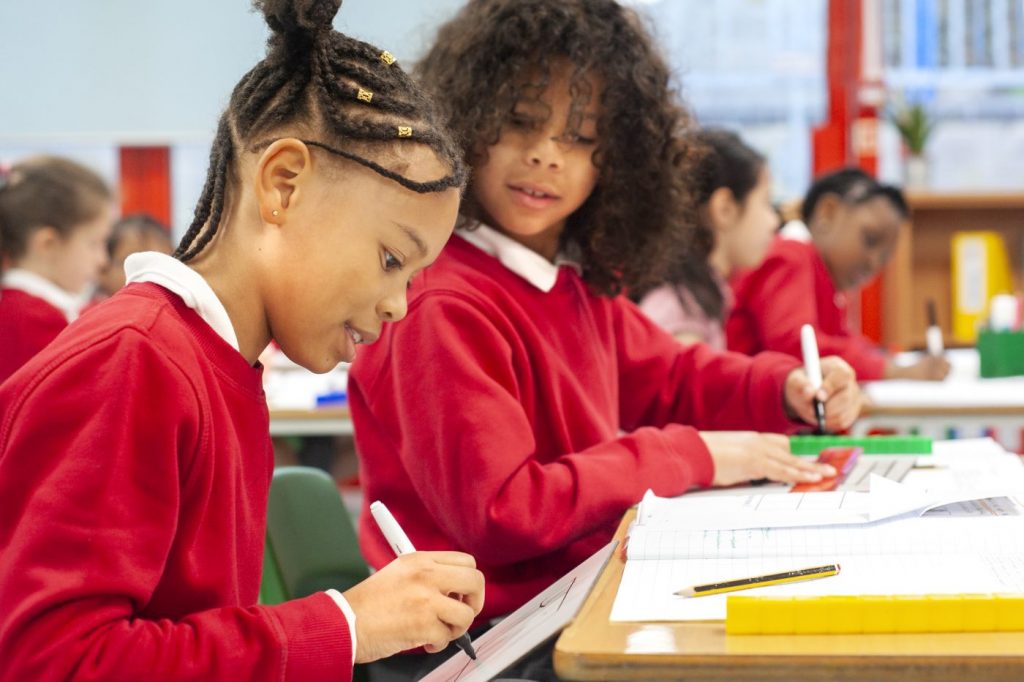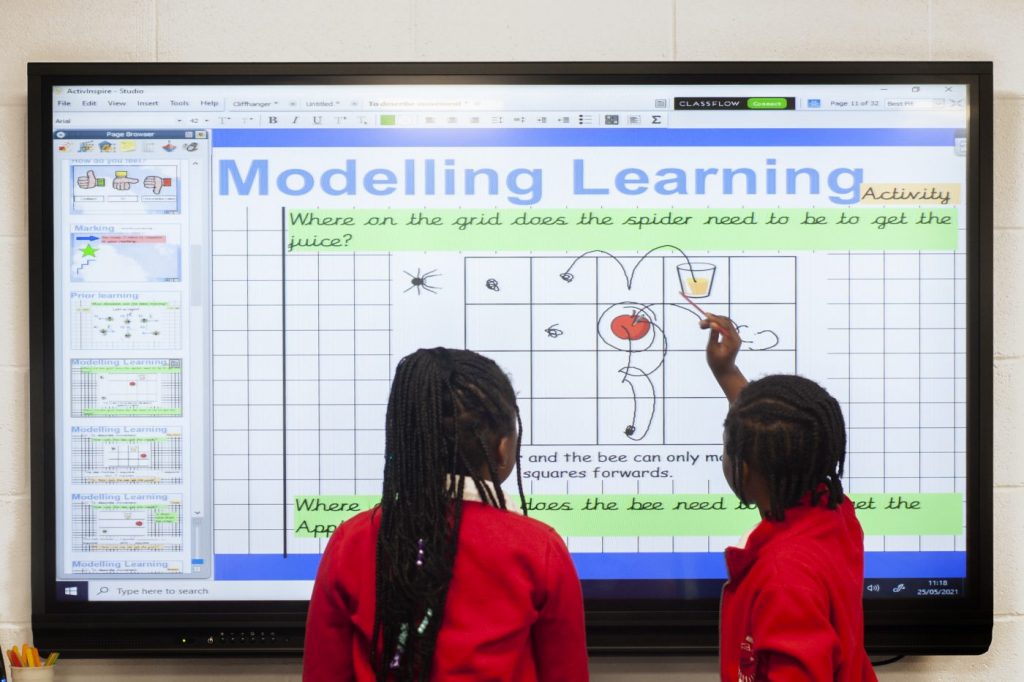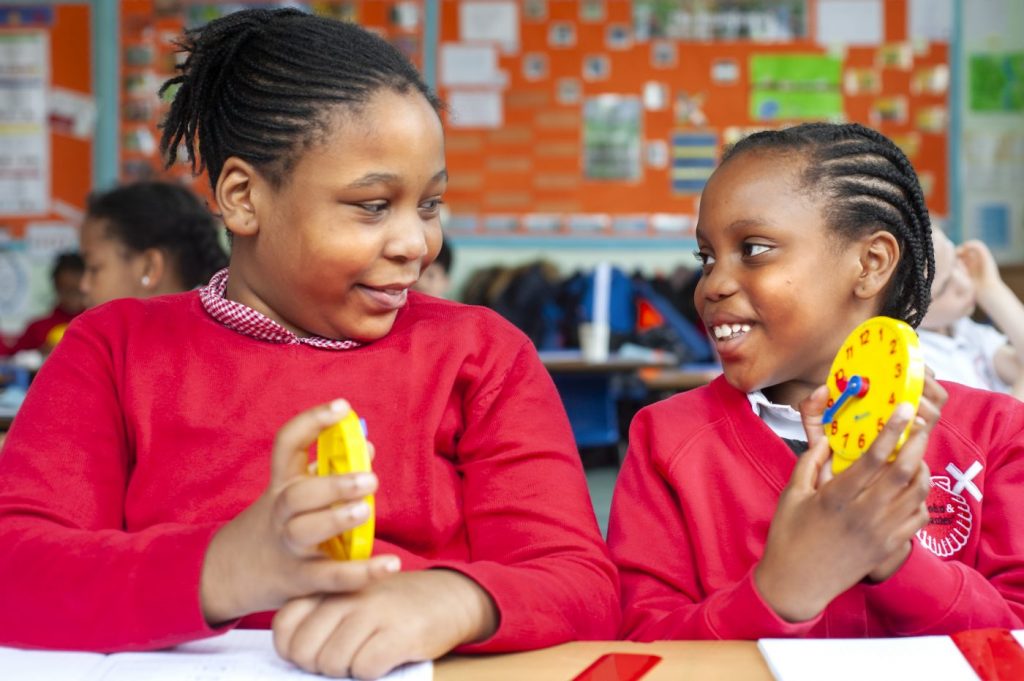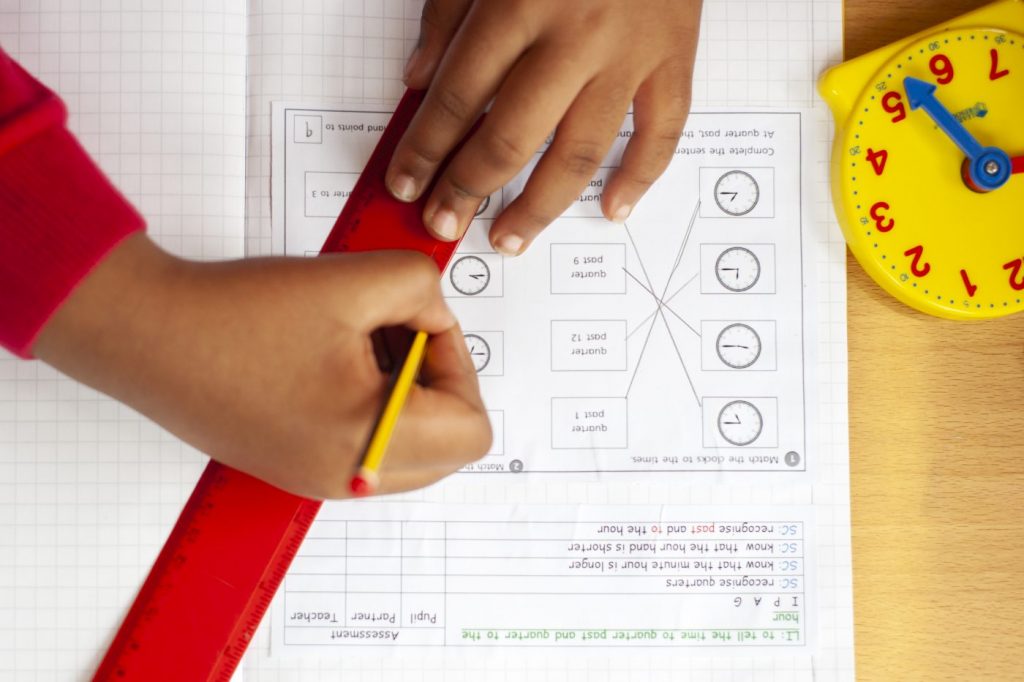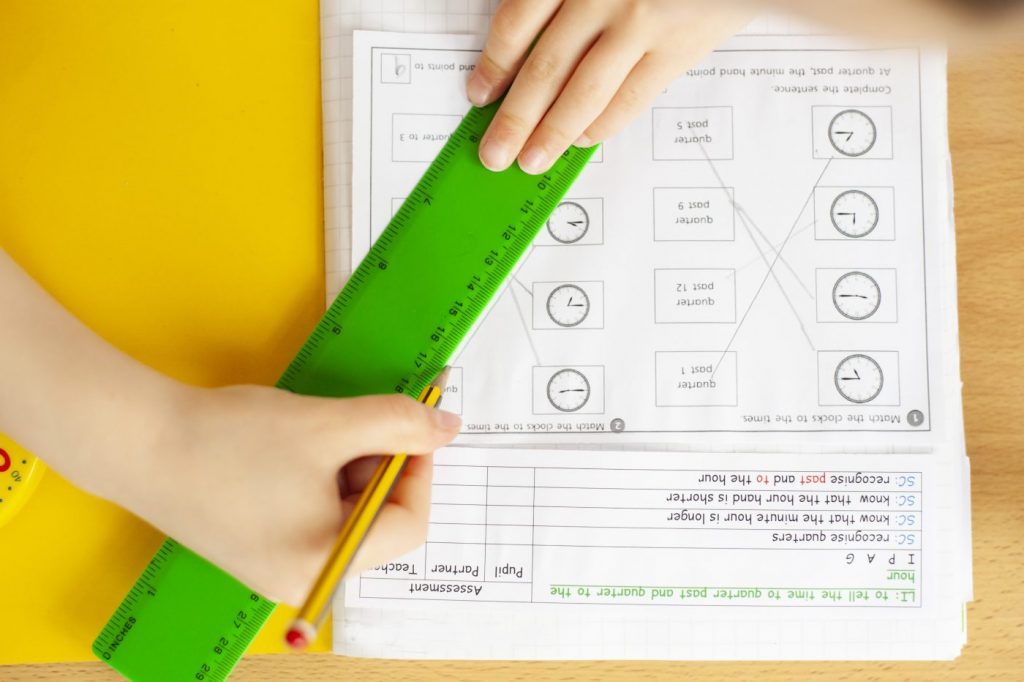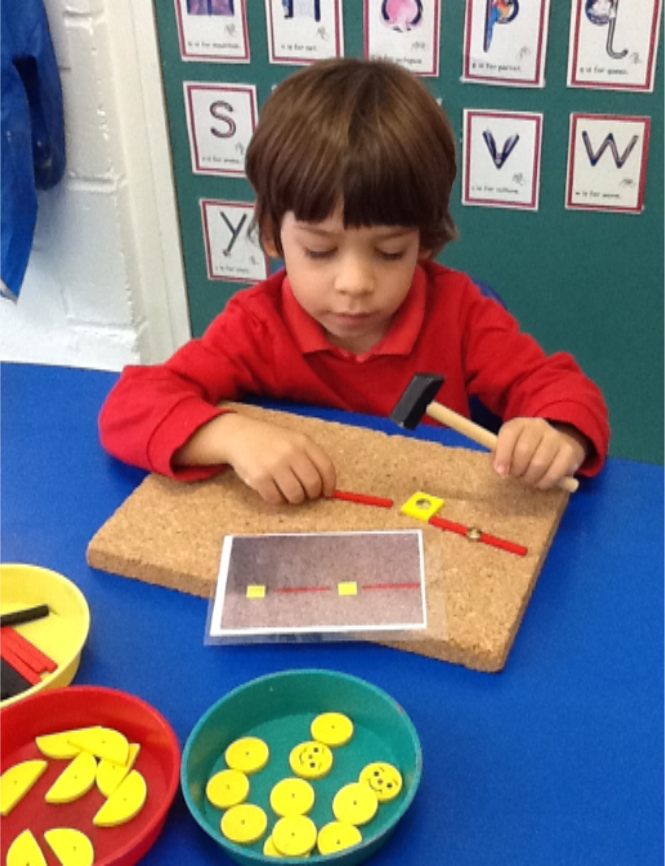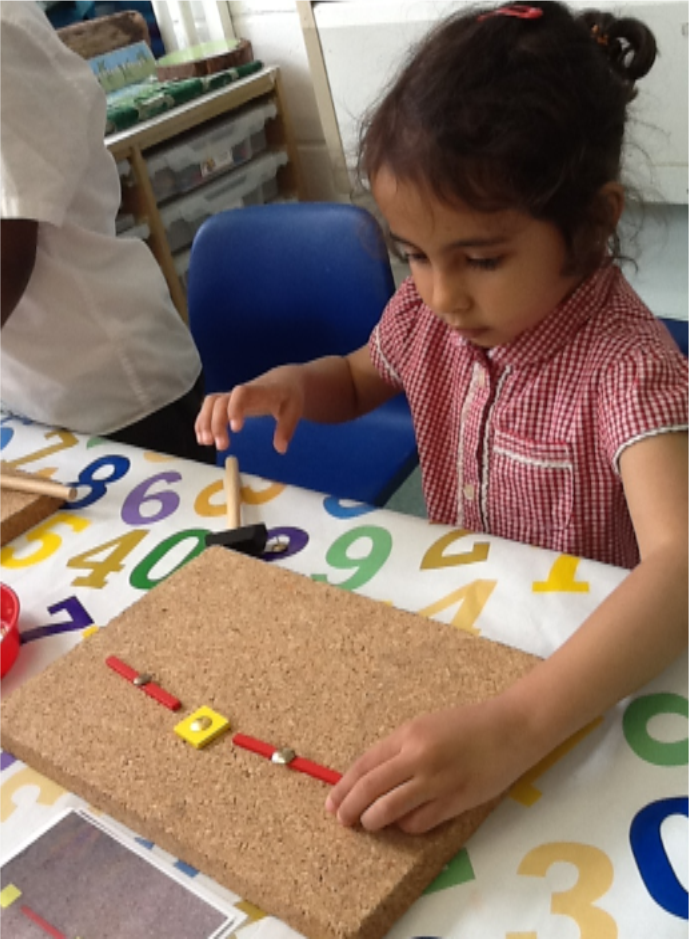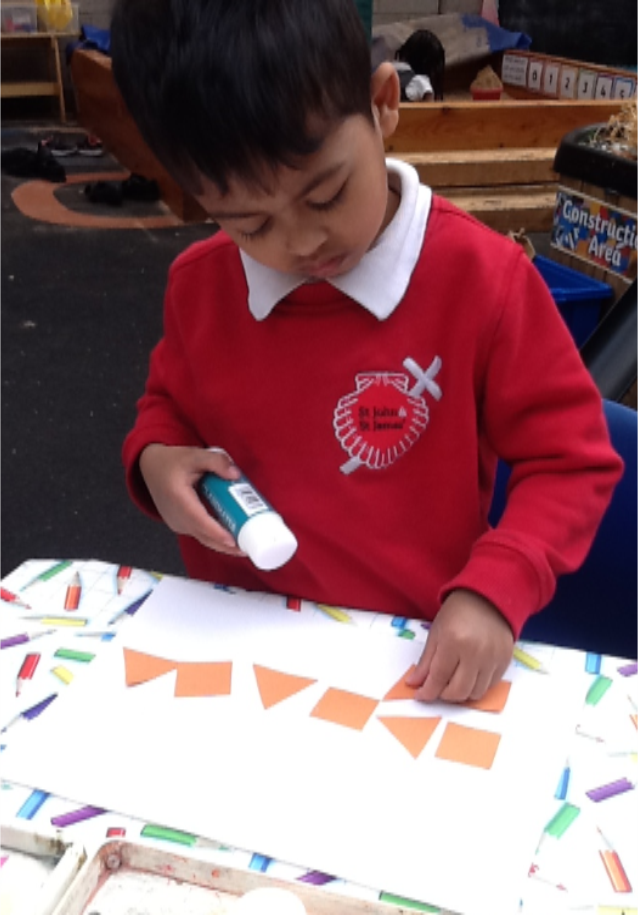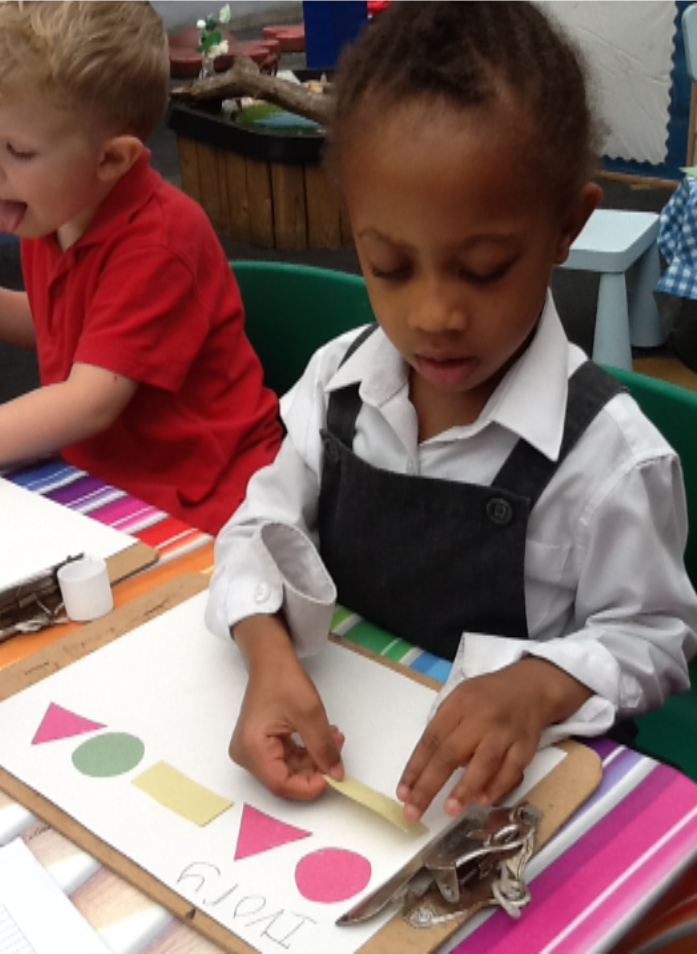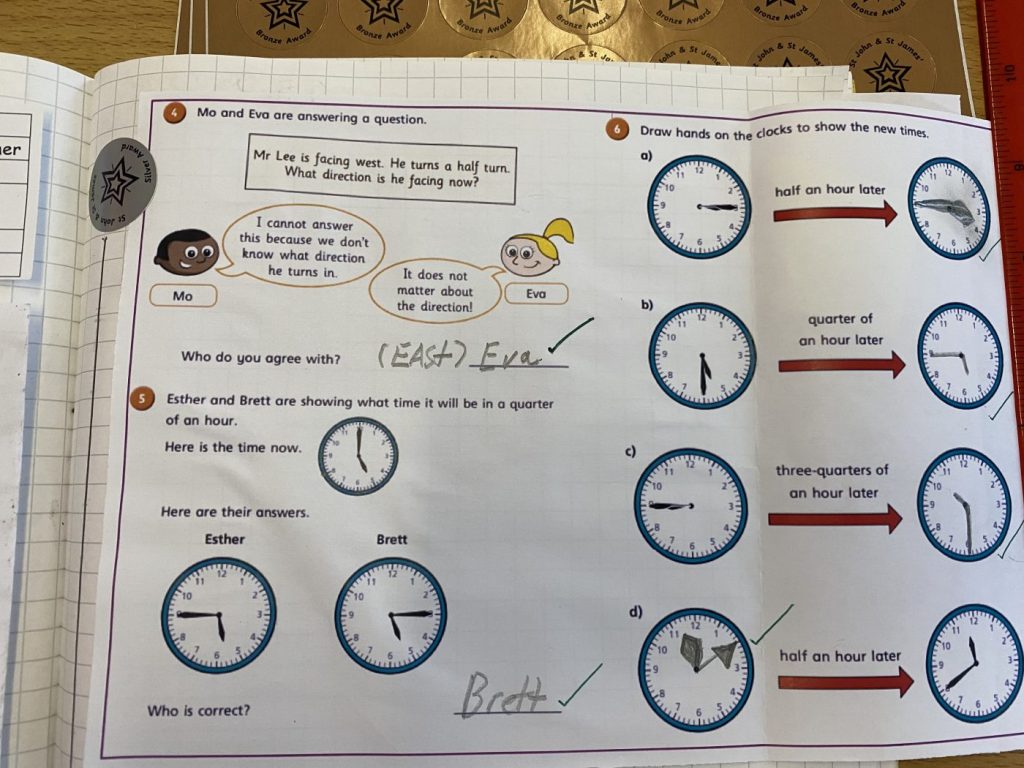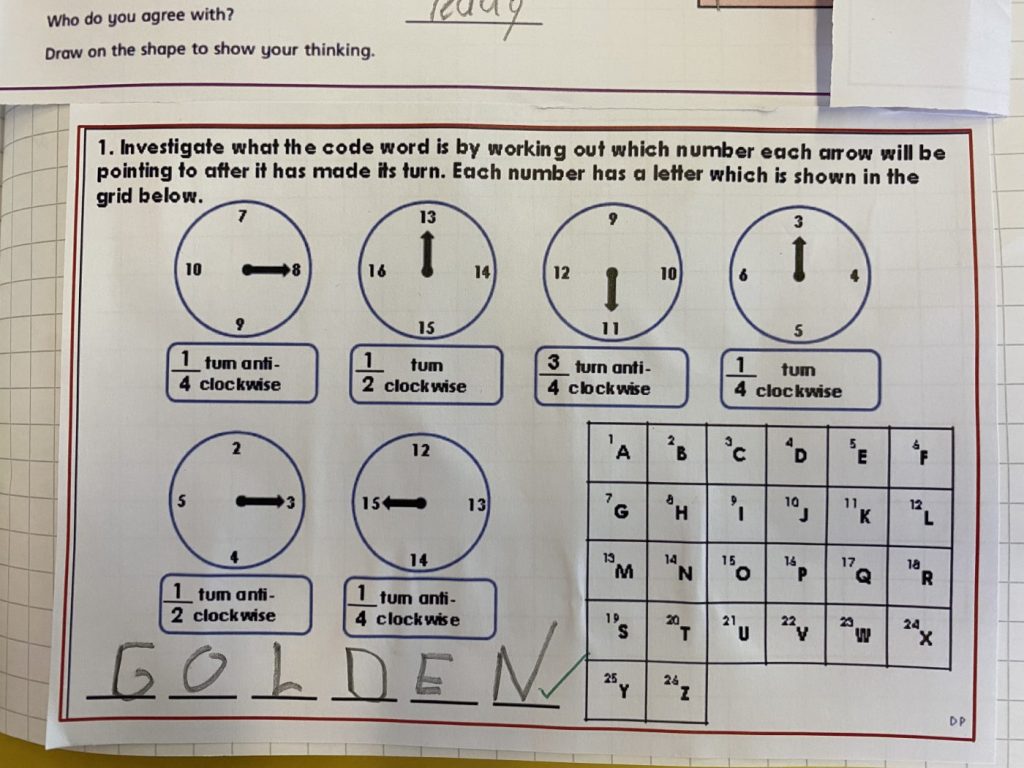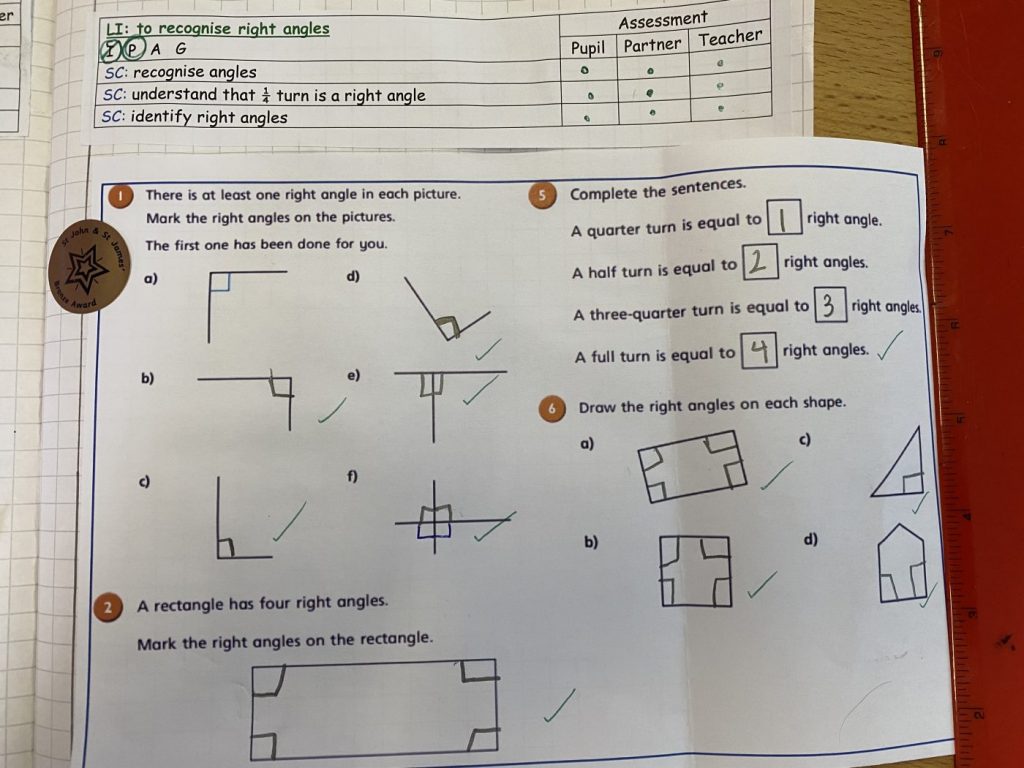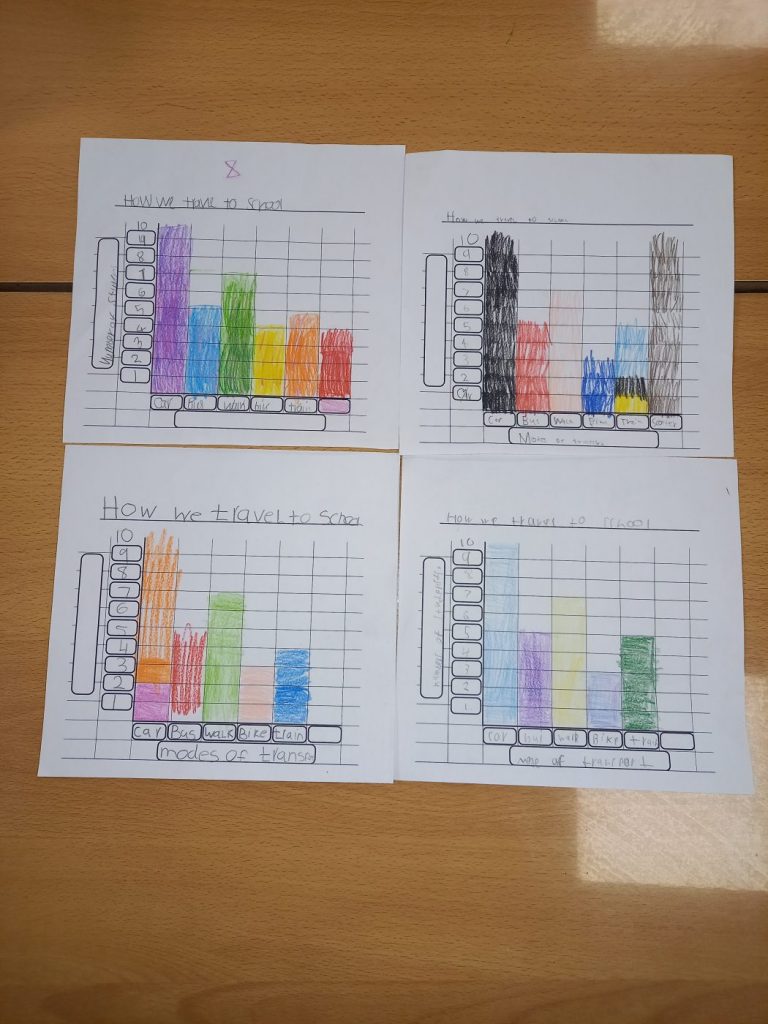Intent
Maths in our school aims to inspire children to love maths and gain enjoyment through a growing self-confidence in their ability. We want our children to be fluent in the fundamentals of mathematics so they can confidently, and independently, apply their learning to problem solve and reason; equipping them to be successful with ‘everyday’ maths and in future careers such as engineering, architecture and business. This requires resilience and daily practice in order for children to have a conceptual understanding of maths topics and feel confident when communicating their knowledge and approach more challenging activities. We encourage children to be reflective; identifying their strengths and areas they wish to develop, as well as recognising what skills they have which enable them to be successful.
Implementation
EYFS:
Maths in the Early Years provides children with opportunities for children to work with concrete resources to embed key maths concepts. These are supported by the adults in class and are reinforced in the continuous provision within the classroom environment. The mastery approach to maths is used to ensure children acquire a deep understanding of numbers to 10 and understand the repeating pattern of numbers. Learning is reinforced through the use of songs and rhymes. The curriculum planning is heavily influenced by the NCETM support materials and White Rose Education.
KS1 and KS2:
Maths is taught across the school five times a week and, each day, the children follow the same sequence within lessons. Lessons are designed to be interactive, with an emphasis on pupil dialogue. After discussing their ideas with others, children are then ready for new knowledge and understanding which teachers can then assess and use to inform next steps with relation to them making further progress. Teachers use White Rose Maths to support them with planning lessons which are progressive and accurately pitched and the NCETM support materials to enhance the provision. These directly link to the National Curriculum objectives for each year group.
Maths lessons begin with counting and chanting of relevant times tables and number facts in order to build fluency and rapid recall. They then focus on an arithmetic objective and practise mental and written methods to solve calculations accurately, before moving on to the main intention of the lesson. For each concept taught, the concrete-pictorial-abstract approach to learning is used. This enables the children to use manipulatives to represent calculations and problems so they can visualize what they are being asked, and begin to make links between mathematical concepts and prior learning. Once the children demonstrate they are secure and efficient, they then begin to make pictorial representations before moving onto more abstract, formal strategies. Children can accelerate through this progression at different rates; therefore resources are accessible at all times for all learners. Application tasks are also provided for all learners throughout the week. These require children to problem solve and reason in a variety of ways and are an opportunity for children to build upon their ‘being a mathematician’ skills, such as working systematically, spotting patterns and following lines of enquiry so generalisations can be made. Maths lessons end with a plenary which is used to challenge and extend the children through further application. This could be, for example, to a different context, spotting an error and being able to explain it, or proving whether something is true or false and justifying why. This enables the children to communicate their understanding and build upon their mathematical vocabulary and oracy skills.
Self and peer assessment is used throughout the week as an opportunity for children to reflect on what they have learned, what has helped them to make progress and to explain any patterns or conjectures they have noticed. At the end of each week, children in year 4, 5 and 6 are also given time to complete several assessment questions which the teacher marks.
The Maths Lead for the school scrutinizes medium term planning at the beginning of each half term and provides individual feedback to all teachers. Members of the Senior Leadership Team regularly meet with staff to ensure their CPD is personalised. This can range from: planning meetings, modelled lessons, organised peer observations, planning scrutiny, staff meetings and book looks. This ensures that all learners are receiving first quality teaching and ongoing assessment is directly implemented into future lessons so no learning is left behind.
Assessment
Children are formally assessed twice throughout the year, however, each half term the teachers assess children against the maths topics they have covered. Analyses are then completed in order for teachers to identify what the children are most confident with and areas which will need further consolidation. In addition to this, the children complete weekly ‘beat it’s’ for their times tables and regular ‘check it’s’ to assess prior learning. These assessments also support teachers with assessing the children against the fundamentals and identifying which children need further support. The assessment data collected is then discussed with the senior leadership team and a raising attainment plan is created to reflect the priorities and focuses for each year group. This includes intervention groups to ensure gaps are closed. Daily marking by the teacher is used to inform fluid interventions for pre and post teaching.
Maths at home
Each week, children are given maths homework to consolidate the learning which has taken place throughout the week. This is a combination of arithmetic and reasoning questions and is a great opportunity for parents to gain insight into the strategies being taught to their children and the types of problems they are expected to solve. To support with the development of fluency, children from year 2-6 also have access to ‘times table rock stars’ which they have personal logins for. This is a website designed to target particular multiplication tables, relevant to the child’s year group, and encourage children to have rapid recall of them whilst having fun.
Parent workshops are also offered throughout the year to support parents with understanding the strategies and language we use when teaching. These begin by focusing on the four operations and the progression within each, before looking at reasoning across the school and how we support children with the visualisation of everyday problems. In addition to this, all parents are informed what learning is taking place via the class newsletter which is distributed each half term. They also receive a booklet outlining the fundamentals for their child’s year group.
